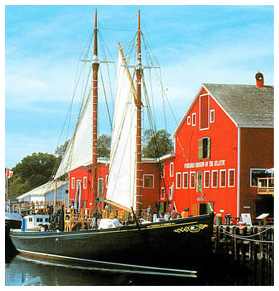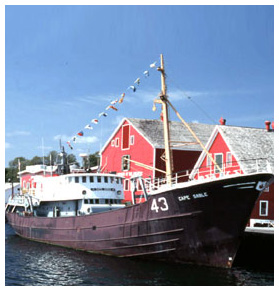 Theresa E. Connor
Theresa E. Connor
Explore the decks of our flagship schooner Theresa E. Connor. Built in 1938 at Lunenburg’s Smith and Rhuland Shipyard, this vessel is among Canada’s oldest saltbank schooners and a true survivor of the age of dory fishing.
 Cape Sable
Cape Sable
Cape Sable is a popular wharf-side attraction. This steel-hulled side trawler was built in 1962 at the Boot-Leiden Shipyard, Leiden, Holland and retired in 1982 after 20 years of fishing for National Sea Products Limited. Once a state-of-the-art vessel, Cape Sable was ultimately replaced by larger and more efficient stern trawlers. Cape Sable is currently undergoing conservation work and will be closed for the 2024 season.
Cape Sable is closed due to ongoing conservation.
Wheelhouse and Captain’s Cabin (Cape North)
At the end of one of the Museum’s finger wharves, facing the harbour, is the wheelhouse of the side trawler Cape North, built in 1945. This vessel had been the first successful fresh fish trawler to fish from the port of Lunenburg.